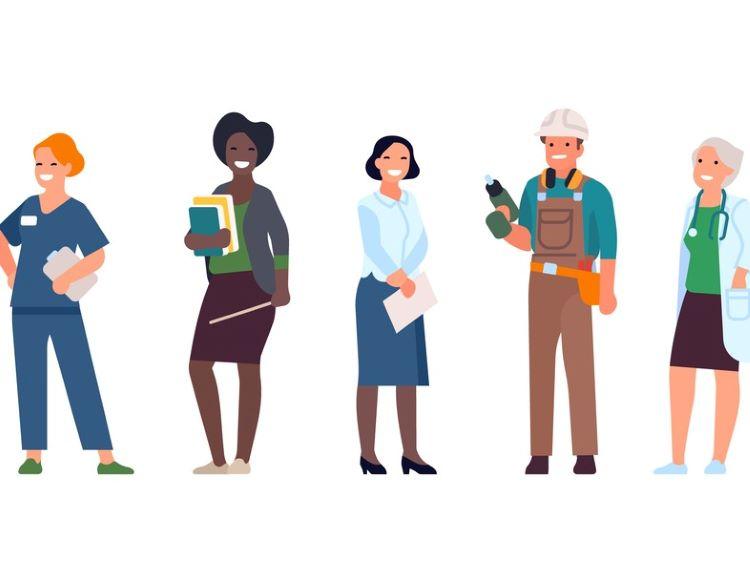Working-class students are attending university in record numbers, but this hasn’t translated to top graduate outcomes. In fact, research shows that a first-class graduate from a disadvantaged background is still less likely to secure an elite job than a more privileged student with a 2:2 degree. The UK’s most powerful people are still five times more likely to have attended private schools than the general population, according to the Sutton Trust’s Elitist Britain report.
When we select graduates based on privilege, rather than potential, we not only deepen societal inequality, we also risk squandering some of the UK’s brightest minds – at a time when talent is crucial for economic success.
Understanding the class progression gap
The barriers facing students from lower socio-economic backgrounds extend far beyond financial pressures. Maintenance loans fall £502 short of monthly living costs, according to data from Save the Student, but the deeper issue is the knock-on disadvantage this creates.
- Campus talks: how to be a good mentor and mentee
- As a black, female student, I wish I’d had a peer-mentoring scheme
- Foster mentorship skills to create the socially responsible leaders of the future
Students from low-income households, who are unable to rely on the “Bank of Mum and Dad”, are often forced to juggle multiple part-time jobs. This leaves them less time for academic focus and extracurricular activities, while also making it nearly impossible to pursue the unpaid internships that often serve as gateways to competitive careers.
Perhaps more significantly, such students also lack the professional networks that their privileged peers take for granted. Without family connections in professional industries, they struggle to access vital work experience and mentorship, and fail to learn the “unwritten rules” that enable career progression in elite sectors. This knowledge gap breeds a deep feeling of impostor syndrome, leaving students questioning whether elite career paths are designed for people like them.
Why traditional support falls short
Traditional university career services, while hugely valuable for the wider student body, cannot navigate these complex challenges alone. Generic approaches struggle to build the trust and understanding needed to address deeper issues, like unfamiliarity with professional environments or the confidence to apply for opportunities that feel out of reach.
This is where one-to-one coaching becomes transformative. We witness daily how personalised, long-term relationships can level the playing field for students from lower socio-economic backgrounds. Our approach begins with an in-depth employability assessment that identifies each student’s specific strengths and development areas. Students are then paired with a dedicated programme coordinator, who becomes their personal career coach from enrolment to graduation, creating a targeted skill development action plan tailored to their circumstances.
Using this relationship-based model, trust develops over time, enabling coaches to address not just skills gaps, but also confidence and knowledge limitations that group sessions cannot reach. Students receive regular one-to-one coaching calls and access to 15 employability interventions, including mock interviews, professional mentoring, exclusive work experiences and employer events – all personalised to their needs.
Across the 2023-24 academic year, 60 University of Liverpool students participated in our collaborative Liverpool Rise programme, benefiting from 133 one-to-one coaching sessions, 130 CV/application reviews, 37 mock interviews and 25 on-campus skills workshop attendances, and more.
The results speak for themselves: students on the programme experience a significant improvement across all 15 skills outlined in upReach’s employability framework – from “application and interview skills” to “work experience”. Furthermore, this boost in employability directly translates to improved graduate outcomes. Of students who graduated in 2024, 100 per cent have gone into graduate employment or further study after graduation.
Liverpool Rise demonstrates that disadvantaged students require more intensive, individualised support to overcome the complex barriers they face. With universities under increased pressure to meet access and participation plan targets, relationship-based approaches offer a tried-and-tested solution.
The evidence is clear: it’s time to move beyond one-size-fits-all solutions and embrace the transformative power of personal support. Only through genuine, sustained relationships from enrolment to graduation can we unlock the potential of students who deserve equal opportunities to succeed.
Ollie Taylor is head of partnerships at upReach. The Liverpool Rise programme has been shortlisted in the Outstanding Support for Students category in the Times Higher Education Awards 2025. The full list of nominees can be found here. The winners will be announced at a ceremony on 13 November.
If you would like advice and insight from academics and university staff delivered direct to your inbox each week, sign up for the Campus newsletter.




comment